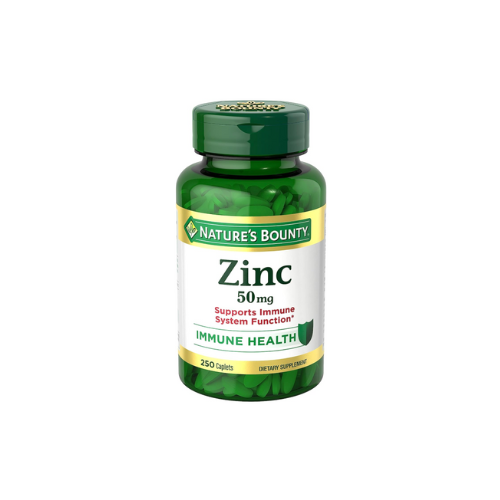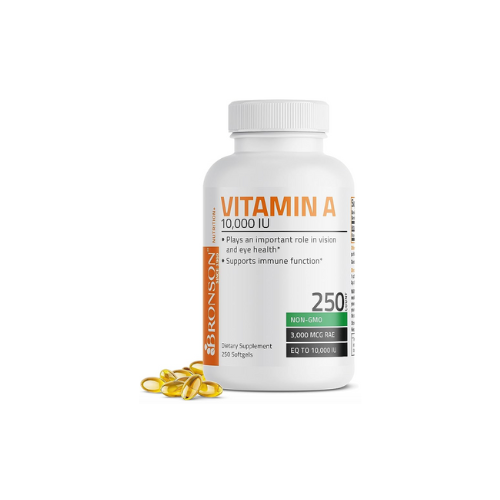Rosacea Carnivore Diet
Evaluating Potential Skin Health Benefits
Rosacea, a chronic inflammatory skin condition, presents with symptoms like facial redness, swelling, and sometimes acne-like bumps. There is no known cure for rosacea, but dietary modifications have often been suggested as a means to manage and alleviate its symptoms. Among various dietary interventions, the carnivore diet, which is rich in protein and restricts carbohydrate intake to almost zero, has recently been subject to discussion regarding its effects on rosacea. This diet consists primarily of animal products such as meat and excludes plant-based foods.
Individuals with rosacea have reported anecdotal evidence suggesting that a carnivore diet may help reduce inflammation and the occurrence of flare-ups. The rationale behind these claims points to the elimination of potential dietary triggers commonly found in plant-based foods, like sugar and some fiber types that might affect gut health and, in turn, skin inflammation. Advocates for the carnivore diet as a treatment for rosacea suggest it may offer anti-inflammatory benefits, potentially due to its high levels of omega-3 fatty acids found in fatty meats and the exclusion of food items that can aggravate the condition.
It's important to note, however, that the relationship between diet and rosacea symptoms is complex and can vary widely between individuals. While some people with rosacea may respond well to a carnivore diet, others may not notice any improvement, or could even experience worsening symptoms. Moreover, the long-term health implications of such a restrictive diet are a matter of ongoing research and debate in the medical community. Healthcare professionals typically recommend personalized dietary plans and may caution against radical dietary changes without proper supervision.
Understanding Rosacea
Rosacea is a chronic skin condition influenced by various triggers, notably diet. Effective management often involves identifying and avoiding these triggers.
Skin Condition Overview
Rosacea is a long-term skin disorder that primarily affects the face. Its etiology is not fully understood, but it is characterized by episodes of facial redness (erythema), small red bumps, and, at times, visible blood vessels.
Symptoms and Flare-Ups
Symptoms include redness, swelling, and acne-like breakouts that come and go. Flare-ups can be triggered by external factors such as stress, weather, and trigger foods. Identifying and managing these triggers is key to controlling rosacea.
Ocular Rosacea and Eye Symptoms
A subset of rosacea, termed ocular rosacea, specifically impacts the eye area. Symptoms include dry eyes, irritation, and reddened eyelids. It can be uncomfortable and, if left untreated, lead to more serious ocular issues.
Identifying Trigger Foods
Trigger foods can vary among individuals but commonly include spicy foods, alcohol, and hot beverages. Foods containing cinnamaldehyde—such as cinnamon, tomatoes, and chocolate—are also potential triggers. Identifying these foods is a personalized process and requires patient monitoring.
Influence of Diet on Rosacea
The impact of diet on rosacea is acknowledged, with emphasis on anti-inflammatory foods and those that support a balanced gut biome. Conversely, foods releasing histamine may exacerbate symptoms. By 2021, research continued to explore the relationship between specific diets, such as the carnivore diet, and their effect on rosacea symptoms.
Carnivore Diet and Skin Health
The carnivore diet, focusing on meat consumption, is under scrutiny for its effects on skin health, including conditions like rosacea. This section explores its principles, its impact on inflammation and gut health, and potential benefits for rosacea patients.
Principles of the Carnivore Diet
The carnivore diet is characterized by an all-meat intake, with proponents consuming primarily beef, poultry, fish, and other animal products. It eliminates most other food groups, especially carbohydrates, and is devoid of fiber. Advocates argue that this diet can lead to various health improvements due to its high content of certain nutrients found abundantly in meats, such as omega-3 fatty acids and zinc.
Impact on Inflammation
Inflammation is a biological response of the immune system that can lead to several skin issues, including rosacea. The carnivore diet is reputed to reduce inflammation, partly because it excludes foods believed to provoke inflammatory reactions. Animal-based foods consumed in this diet can provide anti-inflammatory benefits, primarily through the presence of omega-3 fatty acids found in fish and grass-fed beef.
Carnivore Diet and Gut Health
Gut microbiome health is crucial for a well-functioning immune system, and it has been implicated in skin health. The carnivore diet, by excluding fiber and probiotics typically found in plant-based foods, could modify the gut bacteria composition. Supporters suggest that this restriction might eliminate gut bacteria that contribute to inflammation, though critics highlight the importance of fiber and probiotics for overall gut health.
Potential Benefits for Rosacea
Individuals with rosacea have reported improvements in skin redness and irritation after adopting the carnivore diet, positing a connection between diet and skin symptomatic relief. Specific nutrients like zinc and omega-3s may support skin health and diminish symptoms. However, these are anecdotal evidences, and scientific studies are required to substantiate these claims unequivocally.
Dietary Triggers and Rosacea
Understanding the impact of dietary choices is crucial for individuals managing rosacea, as certain foods and beverages can exacerbate the condition.
Common Trigger Foods
In rosacea, dietary triggers can vary widely between individuals, but several foods have been frequently identified as problematic. A National Rosacea Society survey highlighted that spicy foods were reported as triggers by 45% of participants. Fruits, particularly those high in histamine or cinnamaldehyde, such as citrus and tomatoes, can also provoke a flare-up. Additionally, certain vegetables and chocolates are potential culprits impacting rosacea symptoms.
The Role of Alcohol and Rosacea
Alcohol consumption, especially red wine, has been associated with rosacea flare-ups, with 52% of sufferers reporting alcohol as a trigger in the aforementioned survey. However, it is not just wine that has this effect; beer and other alcoholic beverages may also induce symptoms. It is important for individuals with rosacea to be aware of their alcohol tolerance and adjust their intake accordingly.
Histamine and Spicy Foods
Spicy foods and ingredients that contain histamine or trigger its release often lead to rosacea symptoms. Histamine can cause dilation of blood vessels in the skin, leading to redness and swelling. Foods high in histamine include fermented foods such as sauerkraut, vinegar, soy sauce, and certain aged cheeses. Individuals with rosacea may benefit from minimizing these in their diet.
Dairy, Sugar, and Processed Meats
Evidence suggests that dairy products, sugars, and processed meats can each play a role in triggering rosacea symptoms. Dairy and high-sugar foods may affect inflammation levels in the body, whilst processed meats often contain nitrates and other additives, which could potentially worsen rosacea. It might be beneficial for those with the condition to limit the consumption of these foods to manage their symptoms better.
Nutritional Considerations
Addressing rosacea through diet involves assessing the patient's intake of specific nutrients known to affect skin health. Subsections will explore crucial dietary components that may either help manage rosacea or are essential to incorporate due to their anti-inflammatory properties and skin health benefits.
Omega-3 Fatty Acids and Skin Health
Omega-3 fatty acids, particularly EPA and DHA, possess anti-inflammatory properties that can benefit those with rosacea. They are found in high concentrations in fatty fish, such as salmon, and can also be sourced from flaxseeds and walnuts for those following a vegan diet. Regular consumption of omega-3 fatty acids may help reduce inflammation and the severity of rosacea symptoms.
Importance of Water and Hydration
Adequate hydration is essential for maintaining the health of skin cells and can thus impact rosacea. Patients are encouraged to consume sufficient water daily to help keep the skin hydrated and to potentially reduce flare-ups associated with dehydration.
Vitamins and Minerals for Rosacea
Nutritional supplements, such as zinc sulfate, provide anti-inflammatory benefits and support skin health. Zinc, a mineral found in meat, fortified cereals, and legumes, is crucial for skin repair and may alleviate some rosacea symptoms. Additionally, vitamins A, C, and E, often found in fruits and vegetables, have antioxidant properties that support skin health. Ensuring a balanced diet with these vitamins and minerals can aid in managing rosacea.
Discover the endless possibilities of buying zinc, vitamin A, vitamin C, and vitamin E online!
Table of Nutrients and Rosacea:
Omega-3
Sources: Fatty fish, flaxseeds, walnuts
Noted Benefits for Rosacea: Anti-inflammatory
Zinc
Sources: Meat, legumes, seeds
Noted Benefits for Rosacea: Skin repair, anti-inflammatory
Vitamin A
Sources: Carrots, sweet potatoes
Noted Benefits for Rosacea: Antioxidant, supports skin health
Vitamin C
Sources: Citrus fruits, broccoli
Noted Benefits for Rosacea: Antioxidant, supports skin health
Vitamin E
Sources: Nuts, spinach
Noted Benefits for Rosacea: Antioxidant, supports skin health
Elimination Diets and Food Sensitivities
Elimination diets can be a powerful tool in identifying personal food triggers that aggravate rosacea. By systematically removing and then reintroducing potential trigger foods, one can discern which items may be contributing to flare-ups. Common triggers include spicy foods, alcohol, and histamine-rich foods. Prebiotics and probiotics, often suggested in such diets, might also play a role in gut health, which could influence rosacea.
Treatment and Management
Managing rosacea often involves a combination of medical treatments and lifestyle modifications. The aim is to alleviate symptoms and prevent flare-ups.
Current Rosacea Treatments
Treatment for rosacea typically begins with application of topical creams or gels to reduce inflammation and redness. Among these, metronidazole, azelaic acid, and ivermectin are often prescribed. In more severe cases, a doctor may recommend oral antibiotics, such as doxycycline, to manage symptoms more effectively. The National Rosacea Society provides comprehensive guidelines on these treatments.
Lifestyle Adjustments for Rosacea
Individuals suffering from rosacea may notice improvement by making certain lifestyle adjustments. They should identify and avoid personal triggers, which can include stress, hot weather, or spicy foods. Sun protection is particularly crucial as UV exposure can exacerbate rosacea symptoms.
Rosacea and Gut Microbiome
Emerging research suggests a link between rosacea and the gut microbiome. Hence, addressing digestion and intestinal health might benefit skin condition. Probiotics and dietary changes that foster a healthy gut may, therefore, be influential in managing rosacea.
Long-term Dietary Strategy
A strategic approach to dietary management should be adopted for long-term treatment of rosacea. Elimination diets may help in pinpointing food sensitivities. A carnivore diet, which is rich in omega-3 fatty acids and zinc, has been posited to potentially improve skin clarity and reduce inflammation, though more research is needed to fully endorse this diet for rosacea patients.
Research and Studies
This section meticulously explores the landscape of clinical trials, evidence, and expert analysis regarding the impact of dietary patterns, particularly the carnivore diet, on rosacea.
Clinical Trials and Rosacea
Clinical trials have played a pivotal role in illuminating the complex relationship between diet and rosacea. Patients often participate in studies to help identify potential triggers and assess the efficacy of dietary modifications. PubMed, a prominent repository for biomedical literature, features multiple studies which suggest that certain foods may exacerbate rosacea symptoms. Risk factors for rosacea often include spicy foods, alcohol, and hot beverages, though individual responses vary.
Evidence on Carnivore Diet and Skin Disorders
The carnivore diet, which is high in meat and animal products, has been scrutinized for its potential effects on skin disorders like rosacea. Nutrients such as omega-3 fatty acids and zinc, prevalent in this diet, have been recognized for their anti-inflammatory properties. Some dietary studies suggest that a meat-rich diet might alleviate symptoms for some skin disorder patients. However, there is still a need for more rigorous, controlled trials to establish a direct causal link.
Expert Opinions and Reviews
Dermatologists and nutrition experts have conducted comprehensive analyses and reviews on the topic. Although a consensus has not been reached, some suggest that dietary choices can indeed influence rosacea. Niacinamide, a form of vitamin B3, has been noted for its skin-benefitting properties and is often discussed in the context of beneficial supplements for skin health. Professionals stress the importance of personalized dietary recommendations since rosacea can manifest differently across patients.
Online stores offer unbeatable prices for vitamin B3, so don't miss out!









